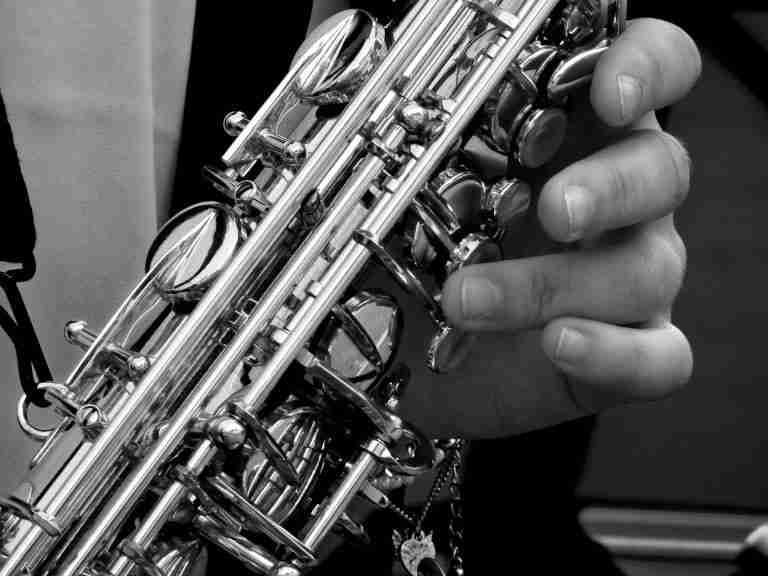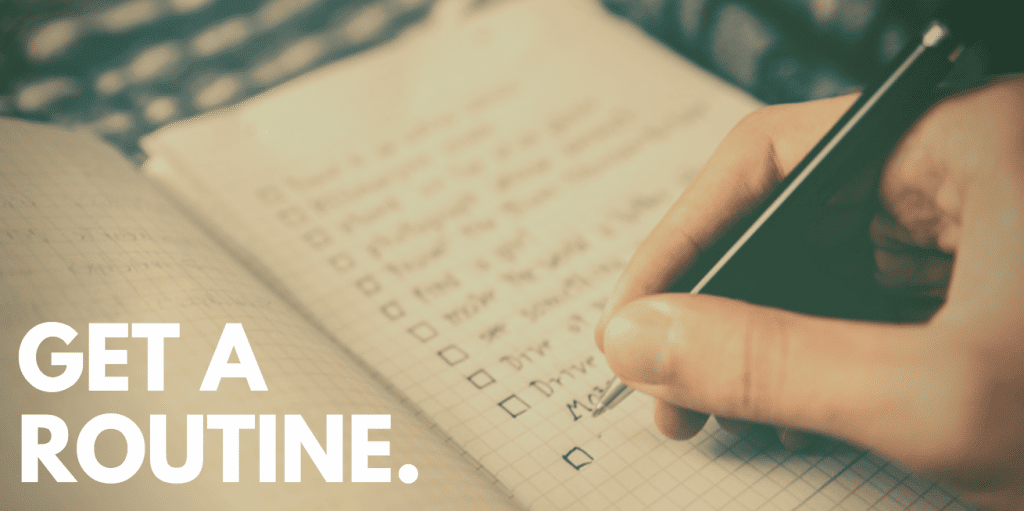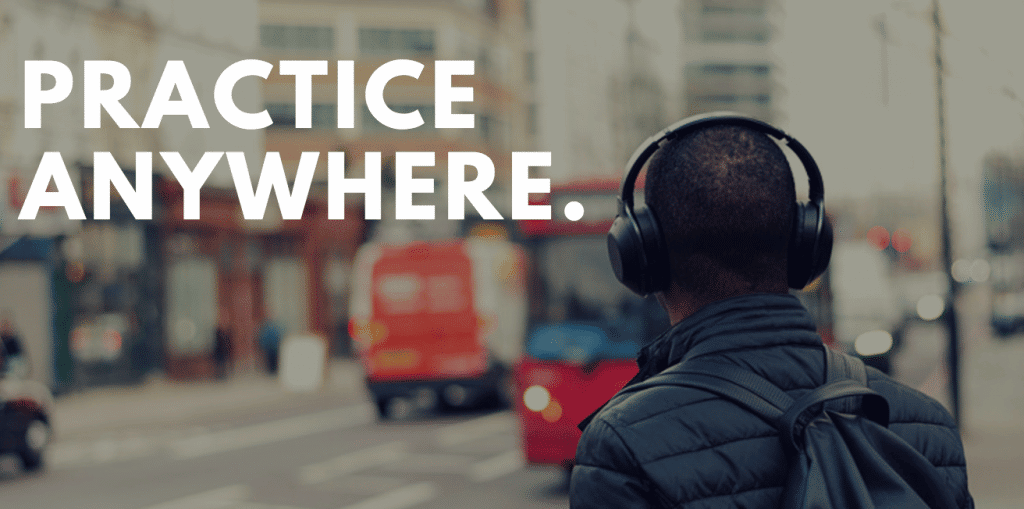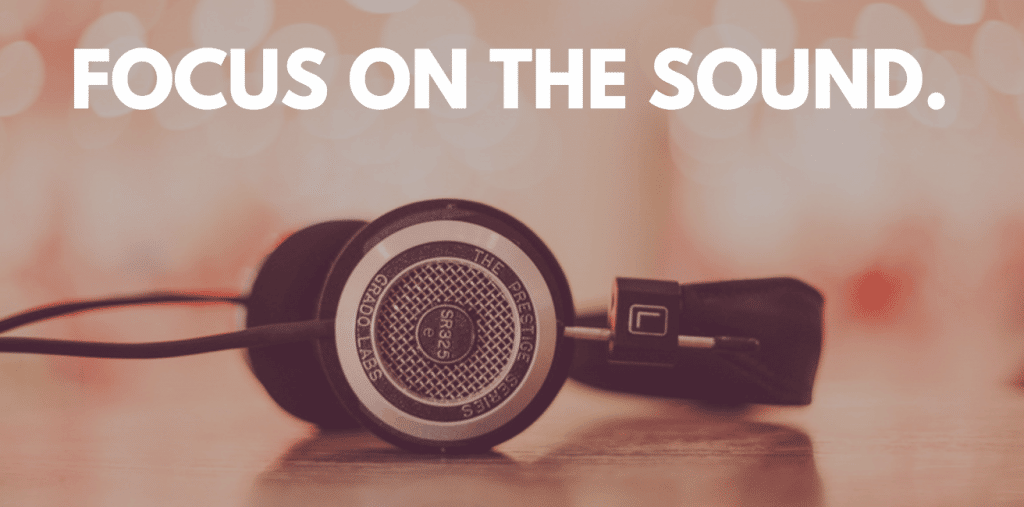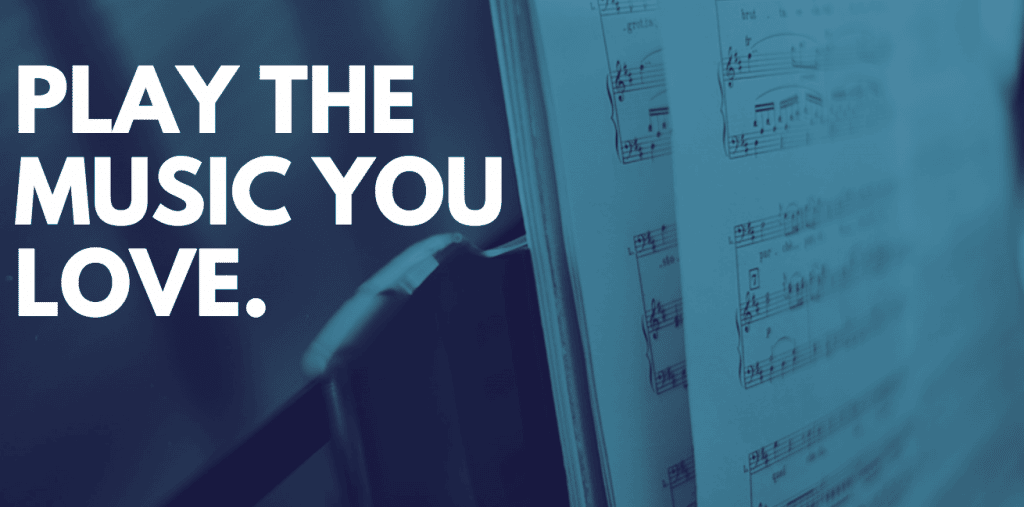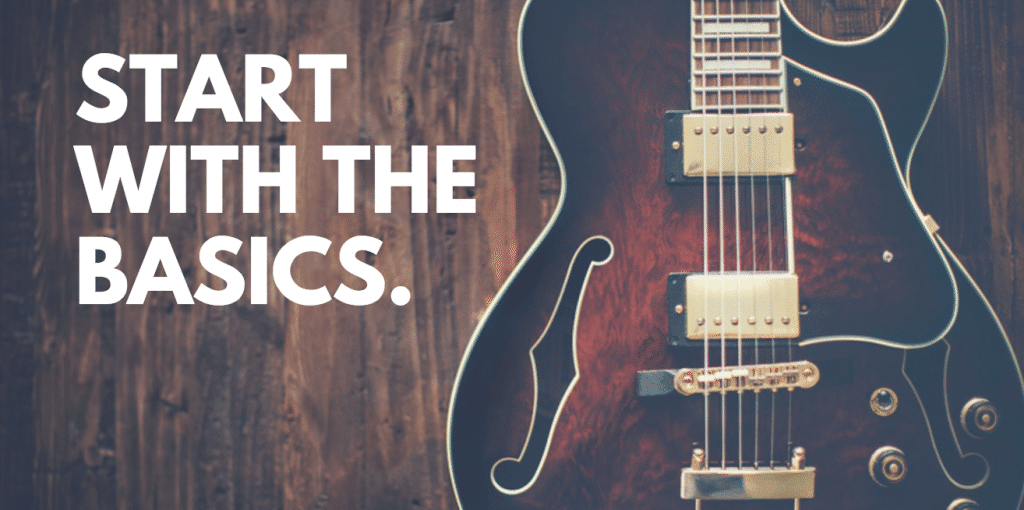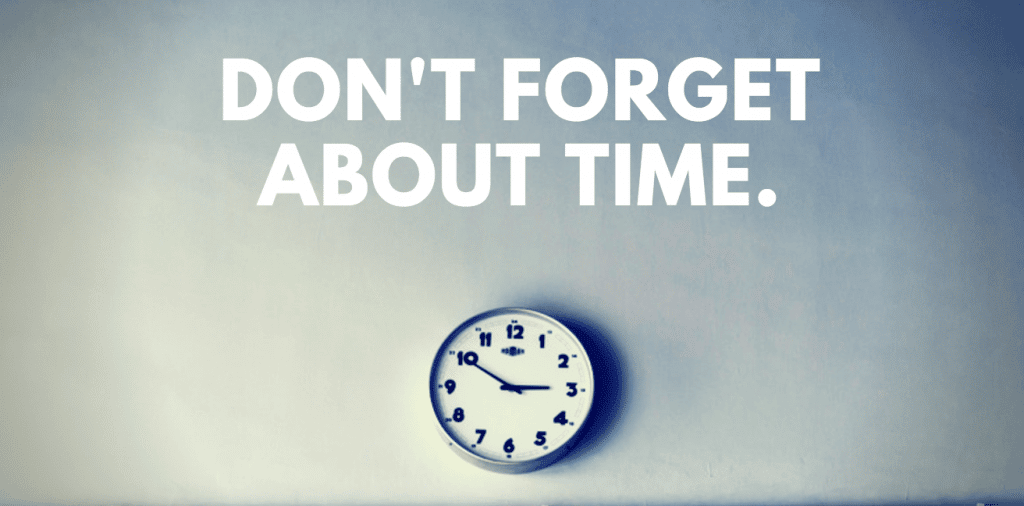You’re a musician. Or at least you used to be one…You played an instrument in high school, faithfully took private lessons, and performed at dozens of recitals and concerts. Maybe you even went on to study in college. There’s a guitar sitting in your closet, a piano in the spare room gathering dust, and a collection of music books stacked on your shelf.
You’ve spent hours memorizing music theory, taken your fair share of auditions, and played in a few bands. You were actually pretty good, but then you had to face the facts and get a job.
There was even a time when you had a solid practice routine, devoting multiple hours a day to your instrument, but that too fell to the wayside. Now you’re lucky to play a couple notes a few times a month.
Somehow life just got in the way and your instrument got lost in the shuffle. It happens to the best of us.
But deep down you know you’re still a musician and that music is still a part of your life. Now you’re ready for a comeback…
Music is a pretty powerful thing
You’ve probably read about the mental and creative benefits of playing an instrument.
But music has more than benefits for your brain. It’s an activity that will enrich your life, connect you with the people around you, and introduce you to new cultures.
Music can alter moods, change minds, inspire hope and bring about focus and motivation. Just look at the audiences at concerts or the lights in peoples’ eyes when they talk about their favorite song.
If music is something you love, there’s no reason that you shouldn’t be pursuing it.
“But what if I haven’t practiced in a long time, am I still a musician?” you might be wondering.
Well, you’re still a musician when you get excited listening to music. And you’re still a musician when you see players performing on a stage and know deep down that it could be you up there…that it should be you!
It may have been months or even years since you’ve played your instrument or practiced seriously, but the good news is that the skills and progress you made in the past are still there, you just need to dust them off a little.
And that’s exactly what we’re going to help you with today. Here are 10 practice hacks that every comeback player needs to know:
1) Start with the right mindset
As a comeback player there are dozens of reasons for keeping your instrument in the case…
You’re too old. You aren’t talented. You don’t have enough time. There’s simply too much to learn. Maybe you’re the worst player in the room and you don’t want to be embarrassed trying to improvise in public.
These are all powerful feelings that would prevent anyone from getting back in the practice room or on the stage. But think about it, are these reasons big enough to stop you from pursuing something you love?
The first step in rekindling your musicianship lies in learning how to overcome these persistent mental blocks, and this can be trickier than it seems. However, there are a number of effective ways to push through these challenges.
The key is getting into a positive and productive mindset before you get into the practice room.
You see we carry around a lot of mental baggage when it comes to playing an instrument. We vividly recall those moments we struggled through a performance, sounded bad at a jam session, or gave up in frustration after trying to learn a tune by ear or transcribe a solo.
Before you practice or perform, aim to clear your mind of this mental clutter with a few minutes of meditation. Close your eyes, breathe, and take a moment to review your goals. This is your opportunity for a fresh start.
Remember, there’s no rush to the finish line – you’ve got your entire life to work on music.
And the truth is these feelings of nerves before a performance, of self-doubt in your ability, and frustration in your progress don’t go away, but once you learn to harness the power of the musical mind you’ll be much more effective at reaching your goals.
If you’re looking for a more structured approach to conquering the mental obstacles of practicing jazz improvisation, be sure to check out our 30-day plan for reprogramming your musical mind.
2) Establish a practice routine
So you want to play your instrument seriously again.
Preferably at a higher level than the last time you played. That’s great, but now what??
Ambitiously picking up your instrument every now and then is not going to turn you into a brand new musician. If you’re serious about making a lasting difference in your musical abilities you need to have a plan of action.
This means setting some goals and establishing a routine.
In his article 5 Scientific Ways to Build Habits That Stick, the writer Gregory Ciotti recommends setting Micro quotas and Macro goals. He explains…
“Your goals should be the big picture items that you wish to someday accomplish, but your quotas, are the minimum amounts of work that you must get done every single day to make the bigger goal a reality.”
So think about the big picture, where you want to be musically a few months or even a year from now? You might want to be able to improvise a solo over the blues, to go to a jam session with a repertoire of tunes you can play well, or to learn a John Coltrane solo by ear.
Having this defined goal will give you direction in your practice. Rather than aimless playing your instrument, you now have a target to aim for each time you walk into the practice room.
Next it’s time to define your “micro quotas.” In other words, what steps can you take each day to reach your goal?
Break down that big goal into individual techniques and schedule them into your daily practice. Here are some more articles on optimizing your practice time:
- Don’t Touch Your Instrument Until You Do These 4 Exercises
- 2 Simple and Effective Practice Plans for Jazz Improvisation
- What Should I Practice for Jazz Improvisation?
Remember, an hour of focused practice on the right techniques will be more valuable than 4 hours of unfocused time with your instrument. Quality over quantity. Your time is valuable, so make every second count.
3) “Practice” doesn’t have to include your instrument
One of the hardest things to find when you are coming back to your instrument is time.
Time in each day to shed your technique, time to study records, and time to learn new tunes…Where are you going to find all of these extra hours in your day?
A lack of time is actually the most common reason most people give for not pursuing music or learning an instrument.
But what you might not realize is that devoting time to the study of music doesn’t mean that you have to be locked in a practice room for hours at a time. The truth is you can learn important musical skills without even touching your instrument.
Many of the skills you need to develop as a musician, especially as an improviser, are mental and aural – concepts that you can ingrain before you even step foot into the practice room. I’m talking about things like listening, ear training, memorization, visualization, and rhythmic exercises.
Sprinkled throughout your day are opportunities to incorporate these important activities that will aid your musicianship and prepare you for the time you do spend in the practice room.
For example, you can utilize:
- Focused listening sessions – don’t wait until you have your instrument to listen to the solos or tunes that you’re learning. You can turn your commute into a listening session and you can ingrain that Coltrane solo as you walk to the store.
- Visualization exercises to ingrain the chords, chord tones and progressions of the tunes you are studying. If you have a spare 10-15 minutes in your day, use that time to review the progression to a tune that you’re going to practice later or review minor ii-V’s in every key.
- Ear training – spend 15 minutes before bed reviewing chord types or intervals. That way when you do go to practice or perform, these concepts are already ingrained.
Want some more ideas? Here are 5 more ways to practice without an instrument.
4) It’s all about the sound of music
If you’ve spent any time studying music in the past, I’m betting that most of your education revolved around the visual aspects of music.
The notes on the staff, the chord symbols, the music theory terminology, and the rules of harmony and voice-leading.
But all of this stuff just describes the mechanics of music, memorized terminology and rules that don’t actually translate into real-world skills. Sure knowing music theory is important, but if you want to make tangible progress as a musician you’ve got to focus on the sound of music.
I’m talking about the information you take in with your ears – this is where you’re going to make the biggest improvement as an improviser.
Anyone can memorize scales and the rules of harmony, but the real skill you need as a comeback player hinges on your ability to hear chords, to identify common chord progressions and to find the important chord tones in a tune.
As you begin formulating your practice schedule, devote time to ear training exercises, focusing on intervals, chord tones and common progressions. Also, start singing the material that you’re practicing, like the melodies to tunes, solos you’re learning and the melodies you’re hearing in your head.
Finally, strive to get away from the realbook in the practice room and on gigs. This will be difficult and even frustrating at first, but it will pay off big in the long run.
Remember, when you get put on the spot and have to improvise a solo, all you have are your ears.
5) Start with the music you love
The study of music shouldn’t be a chore…
And it shouldn’t be boring or something that you put off like a tedious homework assignment. I mean if you hate practicing, you’re probably doing something wrong.
Music should feel like an experiment, a pursuit that’s full of excitement and discovery. And this starts with the things that you choose to practice everyday.
Don’t force yourself to learn solos that you don’t enjoy listening to. Don’t learn a list of tunes that you are bored with. And don’t force yourself through etudes or follow a practice routine that someone else pushes on you.
There are no strict rules about the best way to learn jazz improvisation.
Your musical journey should be paved with the players, tunes, and musical techniques that you actually enjoy listening to. This could be a pop tune, a chord progression that you heard in a movie soundtrack, or a sequence that you worked out on the piano.
At the end of the day you want to practice something that you’re excited about. Go through your music collection – which players and songs do you go back to again and again? Which records make you daydream about playing?
That is what you should be practicing.
6) Think simple and focus on the fundamentals
There’s a common mindset, especially among players trying to make up for lost time, that complex exercises and concepts are more valuable.
I mean after slogging through the usual theory and technical exercises in the past you want to skip ahead to get to the juicy stuff. You want to sound good right now…
It’s tempting to grab the latest improvisation concept full of triadic pairs or pentatonic patterns, to focus on chord substitutions or outside techniques. Believe me, I have dozens of books and DVDs and to show for it.
But honestly, all of these concepts are useless without a solid musical foundation. It’s kinda like putting a fresh coat of paint on an abandoned shack – it looks better from the outside, but it’s still a broken-down shack. So save your money and your valuable time.
The skills that you want as a musician – playing longer lines, playing at fast tempos, and playing at an advanced harmonic level – all start with solid fundamentals. Listen closely at the solos of the best players and you’ll see what I mean.
There’s a ton of info out there and it’s easy to get overwhelmed or head off in the wrong direction, but remember, the more you put off mastering the basics, the more you’re delaying your musical progress.
7) Imitation is a good thing
Many aspiring musicians have one thing wrong when it comes to learning jazz improvisation…
The belief that they have to figure out how to create a solo all on their own.
That they have to take all of these scales, chords and harmonic rules into the practice room and formulate a completely original approach. That more practice on scales and patterns will suddenly yield the secret to improvisation.
The truth is that it doesn’t have to be this hard! You don’t have to spend years guessing or feel pressured to reinvent the wheel on the spot. There are great musicians that have already done this work for you.
If you want to improve quickly, you need to imitate and learn from your musical heroes. Remember, a single solo by a great player is a valuable how-to for the art of improvisation, a step-by-step guide in learning the tricks of the trade.
Improvisation is not just scales and chords, it’s a language with style and tradition. To become fluent you must learn how to speak from the most eloquent people you can – the great soloists that have come before you.
In fact, one of the best ways to to improve is to copy your favorite players note-for-note – stealing their ideas! If you don’t know were to start, here are 10 Brilliant solos that every player should know.
Sure, transcribing is hard, time consuming and at times tedious. But the bottom line is that it works. And a little bit of focused practice will allow you to make a big improvement in a short amount of time.
Remember, you don’t have to start with an entire solo, you can simply learn one line and absorb it into your playing.
8) Focus on time and rhythm
Just like your ears, the aspects of time and rhythm often get a backseat to the theory of music.
I mean you hear lots of players using the “right” notes over a chord, but few applying these notes in a musical way or with stylistic intent.
A great sense of time is one of the most important factors that separates a beginning improviser from a pro. Don’t believe me? Just listen to any great soloist and you’ll hear great time – rhythmic variety, musical phrasing, swinging lines, and flowing articulation.
If you’re coming back to the study of music, make sure that time is an integral part of your practice routine.
The first way to accomplish this is easy – get a metronome. Practice all of your etudes, scales, tunes, solos, and patterns in the context of time. I don’t care if you’re warming up or playing long tones, turn on the metronome and focus!
After a week, you’ll begin to notice a difference in your approach to improvisation. You’ll gain an awareness of where you are placing your notes instead of randomly inputting scales that match the chord.
Another good way to check you time is to record yourself improvising. As you listen back, you’ll immediately hear if your 8th notes are even, if your articulation is in time, and if you are creating coherent phrases.
9) Find other musicians to play with
Embarking on a musical journey is fun…
But it’s a lot more fun (and successful) when you’re making this trek with other musicians.
Music is meant to be shared with other people. As you get back into the practice room and revive your musical abilities, don’t isolate yourself inside the four walls of your room.
Get out there and meet people!
Find a friend to work on tunes with, look for a local jam session where you can put your skills to the test, and get a private lesson teacher or mentor, someone that you can play for, ask questions and bounce ideas off of.
Along the way, try to be the worst player in the room! The better the musicians that you surround yourself with, the more you’ll learn and challenge yourself.
The challenges of learning to improvise can be frustrating, but remember, you don’t have to face them alone.
10) Get and stay inspired
So now you’re ready to take the bull by the horns.
Ready to jump into the practice room, open your ears and absorb the jazz language. Bring it on!
But if you’re serious about developing your musical skills, the real test starts a week from now or even a month from now. It starts on those days where you just don’t feel like practicing.
What is going to push you into the practice room on a regular basis? What is going to push you to get to the next musical level?
The key to staying with your goals is finding a daily source of motivation and inspiration that will keep you working on your craft, even if you encounter moments of frustration.
Here are a few ideas to keep you inspired and motivated in your routine:
- Listen to great music – The sound of music is what led you to be a musician in the first place, so strive to stay connected to this source of inspiration. Find the records that spark your interest and inspire you to play and be sure to listen to them everyday.
- Have a deadline – Schedule a private lesson, book a performance or plan to go to a jam session. When you have a date on the calendar and know that you’ll have to play in front of other people it will motivate you to get practicing!
- Go see a live concert – Music, especially improvisation, is meant to be heard in a live setting, so try to see as much live music as you can. The energy and excitement of hearing your favorite players in person will recharge your musical motivation and inspire you to achieve more.
- Find a daily Youtube clip that gets you excited to practice and reminds you that you’ve got work to do…
Every musician encounters days where they don’t want to practice, where they are frustrated and discouraged with a lack of progress, but it’s those players that know how to reach inside themselves for motivation that reach their goals.
